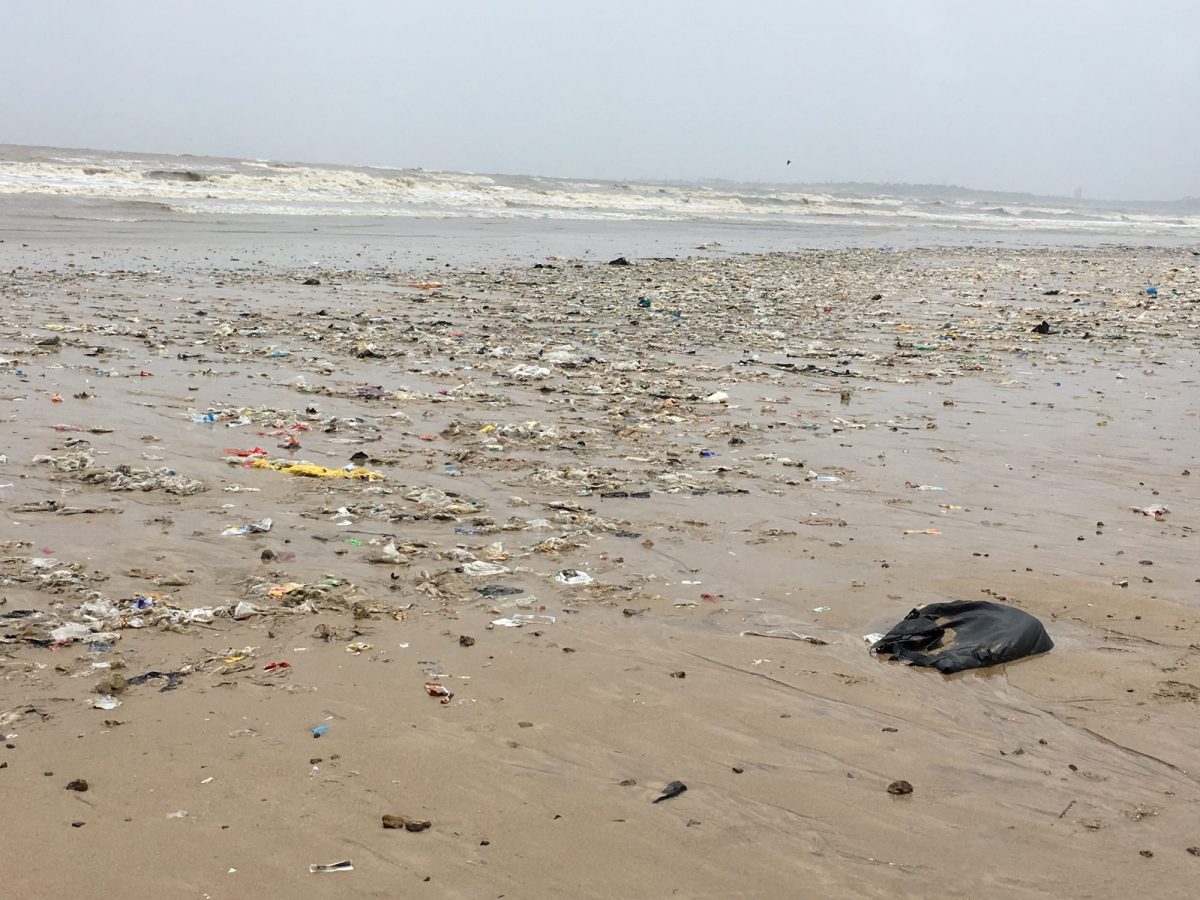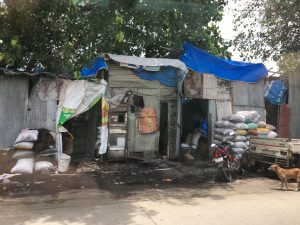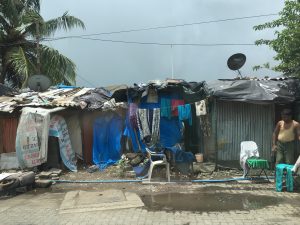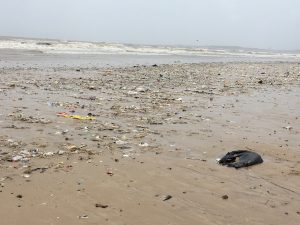Looking For The Light In Mumbai

I didn’t take pictures once we officially entered the slum. I could barely step one foot in front of the other.
I volunteered in the slums of Salvador, Brazil, for 13 weeks after college. The favelas, as they were called, ran out of space for dwelling so inhabitants started building “homes” on stilts in the water (called palafitas). I visited the tiny rural village in Talanga, Honduras, where my brother Tyler volunteered for a year. It had only dirt roads and zero hotels or restaurants that would show up on Trip Advisor. I picked my nine-year-old Dominican mentee named Darlin up each month from a tiny apartment on the bustling, dirty streets of Washington Heights, New York City. Her mother was incarcerated for selling drugs and her father was not in the picture. I traveled through five of Vietnam’s war-wrecked cities with my husband for our honeymoon. I’ve visited many parts of Mexico, Europe, and Central America. Never ever ever have I experienced the amount of poverty and pollution that I’ve witnessed in Mumbai, India. My heart is broken.
Around 55 – 70% of Mumbai’s population lives in slums. After being here just one day, that number does not surprise me. The whole city is basically one large slum. Right next to the “nicer” areas, which hardly look nice compared to U.S. standards, are slums. In fact, the whole state of Maharashtra, where Mumbai resides, is classified as one of the largest slums in the world. All of this while Mumbai is the wealthiest city in India. It’s hard for me to digest. (This article is interesting for quick facts on Mumbai slum life.)
We spent the morning volunteering with children 2 to 9 years old attending a school in Govandi East, the M Ward, right smack dab in the middle of a major Mumbai slum. Walking down the street into the building that housed the school took courage, some of the most that I have ever had to summon. The smell, the garbage, the filth, the muddy puddles, the people… I will never be able to erase this from my mind and heart, though I badly want to.
The silver lining that I am so desperately trying to find in all of this is that these children seemed happy. They were learning basic skills – English, reading, math, hygiene, computers, songs – with smiles on their faces. People donated to this organization, Door Step School, and made it possible for these children to attain education that may allow them to find work one day or even get out of the slum. We read to the kids and sang songs with them, but my heart breaks thinking that I didn’t do much for them. That they actually served me by bringing smiles to my face in the midst of filth, for opening my eyes to the way others live. So I will serve them by telling their story.
I am not saying Mumbai needs to look like the U.S. or my life for it to be happy. But I want there to be hope for the people of this city to be able to choose a different path if they want to. For too many people, I do not believe this is possible. And Mumbai is not the only slum in the world. About one sixth of the world’s population lives in slums.
What I’m saying is that we must preserve the the greatness we’ve created in the U.S. and allow it to be a place people can come to for a better life. We must protect each other and our fragile Earth. We know better and have the means to do better. Just as importantly, we must be grateful. If you are reading this, you are privileged beyond every single person I saw today. Shame on me for my trivial complaints about the “challenges” of my life. Shame on me for ever thinking that I did not have enough. Shame on me for the moments I forgot how blessed my entire family is.
Count your blessings, people. Every damn day. Be grateful you live where you do and have the opportunities you do. And right now I ask you, yes YOU!, to do your part. Make this world – not our country, but this WORLD – a better place. We are all human beings on this one planet together. We all need each other. (Our Earth is in pain, by the way. I see its anger in the fierce brown waves of the Arabian Sea outside my hotel window. I’ve wept for it while here also, in one of the most polluted cities in the world.)
We’ve felt a great sense of helplessness here. Like the problems are so big and deep and overwhelming, where do we start? But Stacy made a statement that by helping one, even just one child have a better life, it makes this trip worth it. Michelle’s Mahaan Aasha Foundation will help many. What if we all did what we can to create a better life for our sisters and brothers of this world? It doesn’t have to be big. It doesn’t have to be small. It doesn’t have to cost money or look like what anyone else is doing. But it has to come from the heart. If more of us can take actions from the heart to embrace all of humanity, change will happen.
What do you commit to in order to take care of our sisters and brothers and our beautiful home? Please comment below.
Donate to Mahaan Aasha Foundation now – click here.
[activecampaign form=5]





What's your greatest take-away from this blog? Any questions?